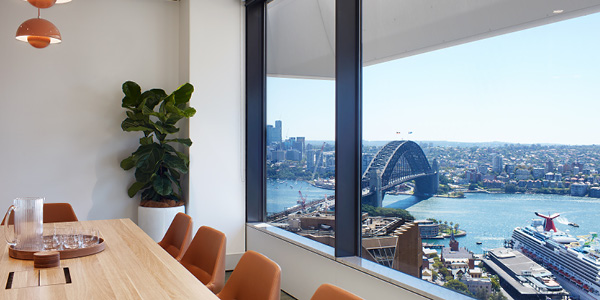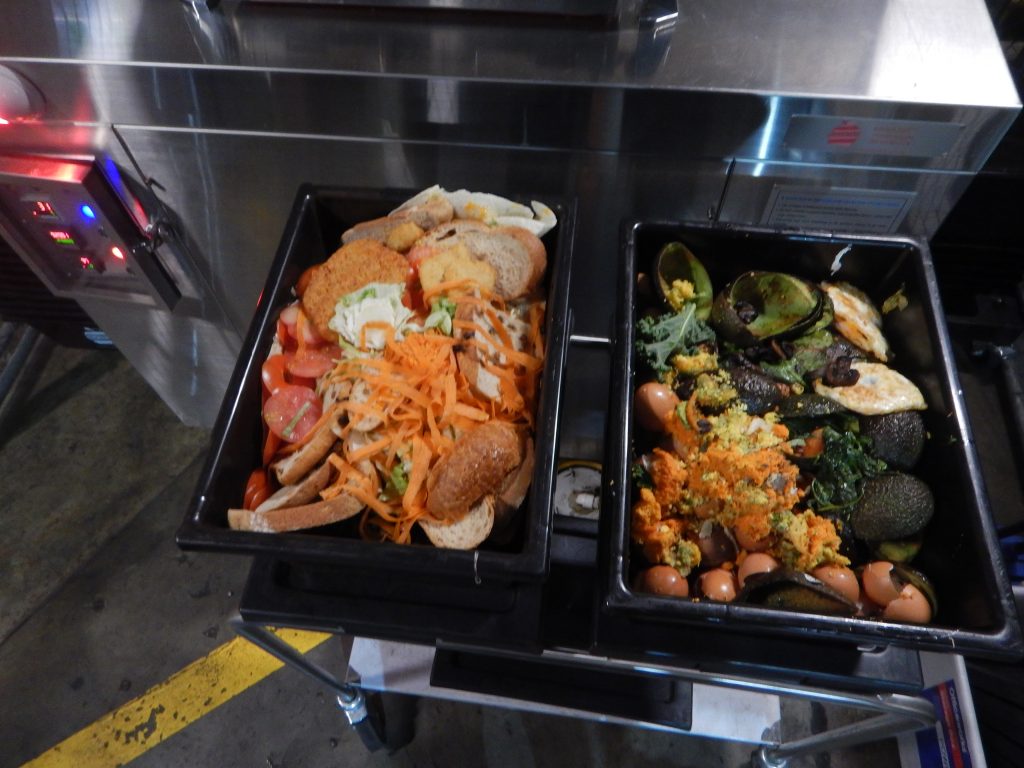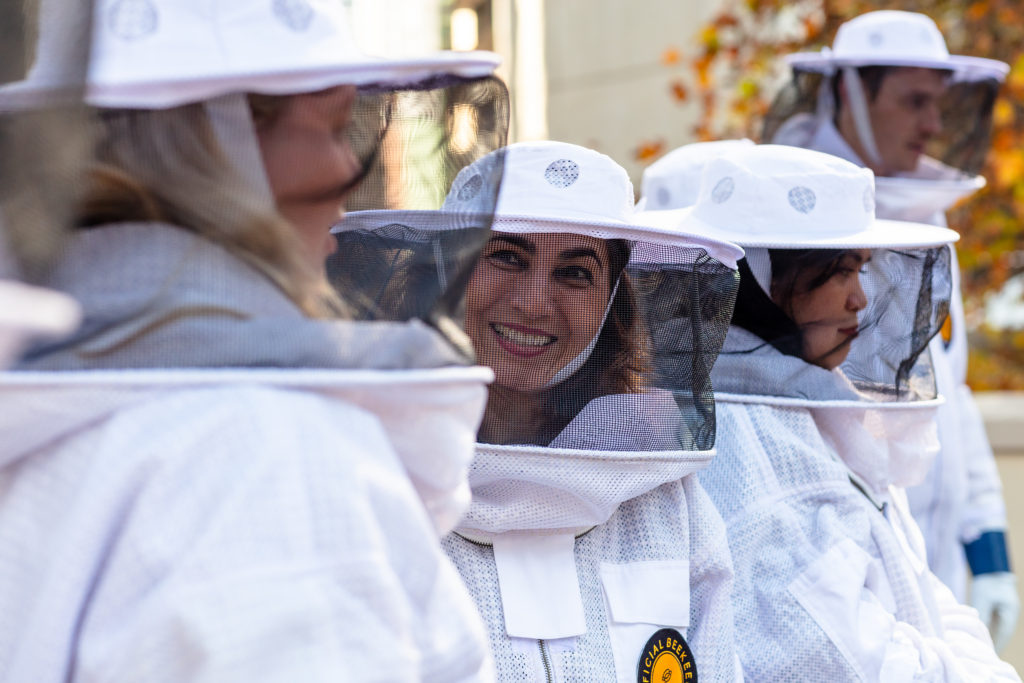Contact
Enquire below to find out more

The choice of office space is the new frontier in delivering Australia’s sustainability goals and it is not only a new building that can provide exceptional results. Sydney’s iconic and award-winning Grosvenor Place is an exemplary pioneer of sustainability practice over its 35-year history.
Architect Harry Seidler was a future-thinking leader who designed Grosvenor Place as an everlasting building, encapsulating design principles that are lauded today and at the time won the coveted Sulman Award.
Alongside his determination to create buildings that embraced quality in every aspect, he was an insightful and pioneer in sustainability through great design.
Many original aspects of our building considered and addressed sustainability issues such as the external window sunshades – cleverly angled to reduce heat and glare, providing efficient saving on the cooling demands of the building.
As modern systems have evolved, we have consistently been early adapters, and as a result have become the largest commercial building in NSW to receive Carbon Neutral Certification. Smart ‘Organic Response’ lighting has reduced tenancy energy consumption with lighting savings of up to 76%. This is supported by 200 rooftop solar panels to offset base load.
Smart meter technology monitors energy and water usage to manage consumption, through real-time energy use data. The new Building Management and Control System will sit on an Integrated Communications Network that brings more smart technology to this already intelligent building.
Chillers using the latest technology with zero Ozone Depleting Potential were installed in 2021, combining life cycle upgrades with a significant sustainability initiative.
Grosvenor Place customers can personally manage their own lighting power consumption with the Organic Response controls embedded in each light fitting. This can deliver personal management control via smartphone.
Other modern measures include a 50,000 litre water tank harvesting rainwater from the roof that is distributed to showers and toilets in our Premium end of trip facilities.
Many of these measures are unseen but some highly visible sustainability attributes introduced have been extremely popular.
We introduced the ‘Simply Cups’ system in 2019 – a closed loop recycling initiative diverting coffee cups from landfill and regenerating the waste product into reconstituted plastic car stops. And we have installed those car stops in our carpark.
And in that car park is another exciting initiative, we adopted in 2022. The Ohmie GO car sharing service offers a Tesla car exclusive to the building community for use hourly, daily or even over a weekend. With provision in the basement for dozens of bicycle racks and a cycling service station – customers can take a healthy ride into the office and then travel all electric to appointments.
And if they have their own electric vehicle there are more than ten Tesla car chargers powered by 100% Greenpower.
In 2019 we installed onsite an Enrich 360 food dehydrator. Food Waste collected from our office and retail customers is sent the basement machine where it removes the moisture then heats and cleans the biomass converting it to a fertiliser that appears much like dirt.

The processing of the waste in any 24-hour period recovers food waste, reduces landfill, and replenishes by producing the fertilizer that is used to enrich soils without chemicals to grow more nutritious food. The entire building is now diverting 300kg of food waste a day, some 75% of waste from landfill.
The latest bees’ knees of sustainability initiatives is the newly installed beehives housing 60,000 European bees on the roof of Royal Naval House in the Grosvenor Place complex. The two hives repurpose an unused space, support a critical ecosystem species and produce the buildings very own honey, some 20 Kg or 140 jars at the latest harvest.
Water from the condensation of the air conditioning units and abundant rooftop sunlight ensure the bees thrive. They can travel up to 10km so there’s lots of food for them in the precinct as they help pollinate and support CBD plant life.
Customers get to experience guided beekeeping as part of their workday, learning about the vital importance bees and receiving jars of honey in return. There are also beeswax making workshops so they can make their own beeswax wraps to eradicate plastic and create lip balm and candles to keep.

Founder and Director of Rooftop Bees, John Prince, said Bees were critical to food security and extremely important for the entire ecosystem to function.
“Our partnership with Grosvenor Place is not only helping bring pollinators back to the city, it’s inspiring and educating the entire building community about the importance of bees and environmental issues more broadly,” he said.
So, from the office to home, sustainability is made simple and accessible in our iconic building.
Contact
Enquire below to find out more

